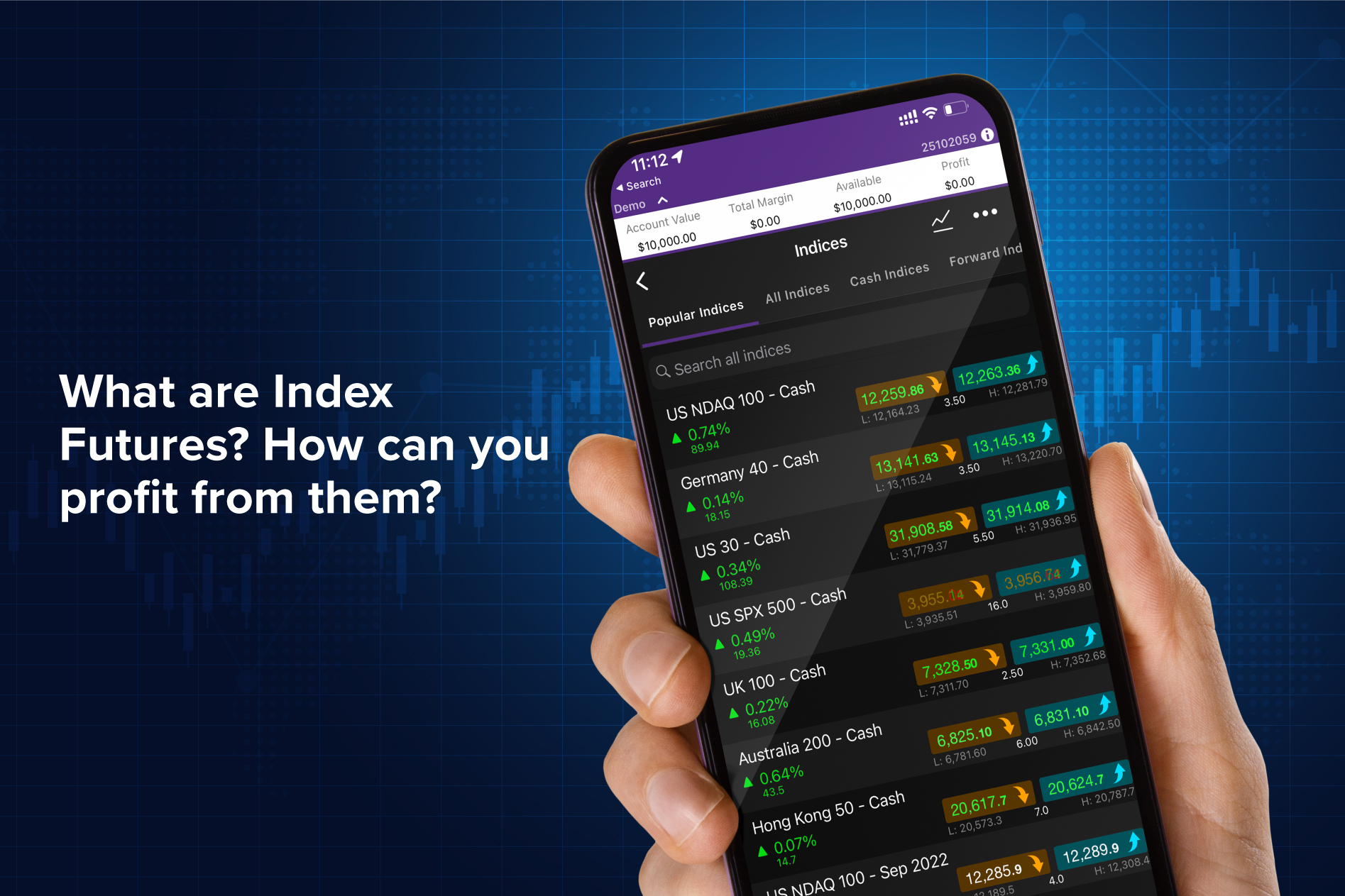Wednesday, December 28, 2022
What are Index Futures? How can you profit from them?
By Century Financial in 'Blog'

.jpg)
Index futures contracts were traditionally meant for institutional investors. However, today it is open for individual investors, which means you can also track and speculate on the price indices to make a profit.
Like most investment options, it’s essential to understand the risks and opportunities before getting started with indices trading. So, let’s begin with the basics.
What are indices?
An index tracks the prices of a group of assets like equities, currencies and commodities. For future trading in equities, indices are formed to measure the price performance of a group of shares from a stock exchange. They can help your portfolio get exposure to a new economy or sector by taking up a single position.
The values of the stock market indices are calculated based on the market capitalization of the companies that form the index.
Some of the most traded indices globally include:
- DJIA - tracks the value of the 30 largest blue-chip companies in the US.
- DAX – tracks the performance of the 40 largest companies listed on the Frankfurt Stock Exchange.
- NASDAQ 100 – tracks the market value of the 100 largest non-financial companies in the US.
- FTSE 100 – tracks the performance of 100 blue-chip companies listed on the London Stock Exchange.
- S&P 100 – tracks the value of the 500 large-cap companies in the US.
Understanding Index Futures
Index futures are a lot like any futures contract, as an investor, you can get the cash value of a contract based on an underlying index at an agreed-upon price for a future date.
While trading in index futures, you can hedge or speculate on future price changes in the underlying equity index. Equity index futures are cash-settled. This means that even though the contract states the agreement to purchase an index at a specified future date, there are no transfer underlying assets at the end of the contract.
If the price of the index is higher than the price agreed upon in the contract, then the buyer makes a profit. However, if the price is lower, then you will suffer a loss.
The role of margins in index futures As an investor, you don’t need to put up the entire contract amount when you enter the trade. You can get started with a marginal amount which is called the initial margin. As the securities held in the margin account decreased in value before the contract expires, you might be required to deposit more funds into the account. This is known as the margin call. Index prices fluctuate daily, which is why your account should have enough money to cover potential losses. The minimum amount of funds needed in your account is known as maintenance margins.
6 strategies to invest in index futures
While investing in index futures involves hedging and speculation, you can follow a process to ensure that you cover risks and explore opportunities for profit.

While you obviously plan your trades with the objective of profit. However, any indices trading plan should also have an exit strategy in place to help you in case your trade prediction doesn’t go as planned.

One way to protect your investment is to consider a stop-loss order. This will allow you to create a bailout point and end your trade at that price. Of course, because of market volatility, there is no guarantee that the stop order will be executed at the stop price, but it will help you manage losses.

Instead of focusing on commodity futures and equity index futures, focus on what you know best. If you are picking equity futures, then focus on stock markets and indexes that you understand well.

Don’t kickstart your futures trading journey with multiple contracts. Instead, start slow and start safe and make tweaks to your portfolio as and when necessary.
.png)
A margin call is probably a sign that you have stayed with the futures trade for too long. It can be a warning sign that the trade is not panning out as you expected.

Index futures are affected by market volatility, it might be better to ‘go short’ rather than stay for the long term. But equally, you shouldn’t panic with every upturn and downturn in the financial markets. It might be better to trust your plan till you see clear signs that it isn’t working for you.
If you are starting your journey in indices trading, consider getting expert advice from a broker or financial advisor for risk management.
The content in this blog, including any research, analysis, opinions, forecasts, or other information (collectively, "Information"), is provided by Century Financial Consultancy LLC (CFC) for marketing, educational, and general informational purposes only. It should not be construed as investment advice, a recommendation, or a solicitation to buy or sell any financial instruments.
This Information may also be published across various channels, including CFC’s website, third-party platforms, newsletters, marketing materials, emails, social media, messaging apps, webinars, and other communications. While CFC strives for accuracy, we do not guarantee the completeness, reliability, or timeliness of any content. Any decisions made based on this Information are at your own risk. CFC accepts no liability for any loss or damage arising from its use.
Trading financial products involves significant risk and may not be suitable for all investors. Please ensure you fully understand the risks and seek independent professional advice if necessary.
Please refer to the full risk disclosure mentioned on our website.
__1418016979.jpg)














